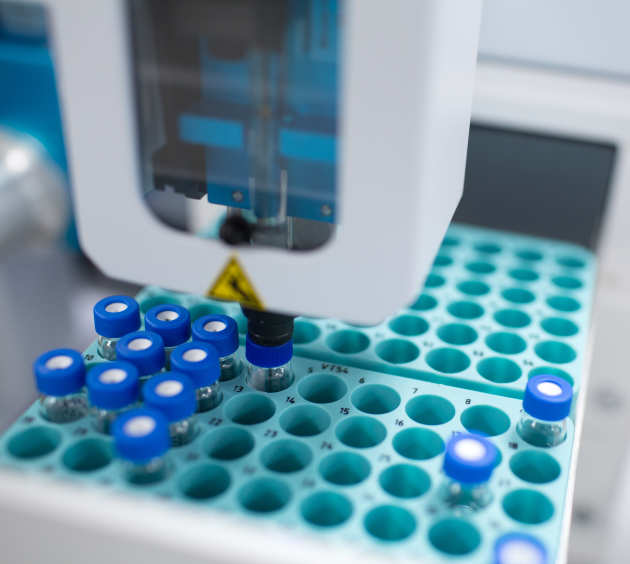The Clinical Phenotyping Centre (CPC) was established in April 2012 within the Biomedical Research Centre's Stratified Medicine theme of the Department of Metabolism, Digestion and Reproduction.
The CPC provides infrastructure and services to support translational research, employing a metabonomic approach to derive novel diagnostic and prognostic biomarker models. It brings together state-of-the-art technologies to analyse the chemical makeup of tissue samples, surgical(diathermy) gases or biofluids, including blood and urine, taken at different stages of specific patient journeys. The analysis of biofluids and tissues identifies a profile of chemicals, or phenotype, which is the combined product of their genetic profile, lifestyle habits and the environment. This phenotype can be linked to clinical outcomes and can be used to advance disease diagnostics, prognosis and treatment. Such models can improve the quality of patient care by allowing an earlier detection of disease, as well as by improving operative risk prediction and reduction. Even though Nuclear Magnetic Resonance (NMR) and Mass spectrometry (MS) analytical platforms have been extensively used in other research fields, their power to provide information about someone's physical condition or disease state is only beginning to be exploited in medicine.
Location
The MS facility of the CPC is located at the Sir Alexander Flemming (SAF) Building on the South Kensington campus, with NMR facilities located at the Queen Elizabeth Queen Mother Wing of St Mary’s Hospital in London.
About the Clinical Phenotyping Centre
- Objectives of the centre
- Association with MRC-NIHR National Phenome Centre
- Collaboration with the academic Division of Systems Medicine
- Clinical applications of metabonomics
- To develop new real-time diagnostic biomarker procedures using analytical techniques (NMR, MS) and computational tools for analysis of biofluids, surgical (diathermy) gases and tissue biopsies.
- To model the temporal relationship between heterogeneous pre-interventional and post-interventional phenotypic information in relation to clinical outcomes in order to derive novel prognostic biomarker models.
- To derive patient stratification procedures in order to enable an optimised choice of therapeutic interventions.


The Clinical Phenotyping Centre (CPC) is closely associated with the MRC-NIHR National Phenome Centre (NPC), funded by the MRC and the NIHR and led by Imperial College and King's College London. Both research centres are part of the Division of Systems Medicine and use similar analytical instrumentation and protocols. The CPC is dedicated to the profiling of samples collected or being analysed by Imperial College London and Imperial College Healthcare NHS Trust staff members. The NPC offers access to stratified medicine projects although it is more focused on population screening. The NPC focuses on the analysis of urine, plasma and serum samples whereas the CPC is more customer orientated and can, therefore, analyse a wider range of biological samples, as well as develop project dedicated methods if necessary to understand the patient journey better.
Please, forward any inquiries concerning the NPC to npc@imperial.ac.uk or to the NPC Manager, Lynn Maslen (l.maslen@imperial.ac.uk, +44(0)20 7594 3318).
--tojpeg_1457997931550_x2.jpg)
The close collaboration between the CPC the academic section within the Division of Systems Medicine facilitates an exchange of knowledge and methodologies that benefits both facilities. The capability of the Centre to work with a diverse range of biological samples and to develop and validate new assays is increased thanks to the expertise of the academic section.
The application of metabonomics to clinical studies has been extensive and has provided novel mechanistic information. A notable example is the study of gastrointestinal and hepatobiliary disease, where the efforts have been focused on discovering mechanistic markers, as well as information concerning disease progression and treatment.
Efforts have also focused on characterising the interaction between host and gut microbiome and the effect of the microbiome on disease risk.
Finally, another important clinical application is the promotion of patient stratification through the use of pharmacometabonomics, which can help predict an individual's response to nutrition, drug administration or surgery.
